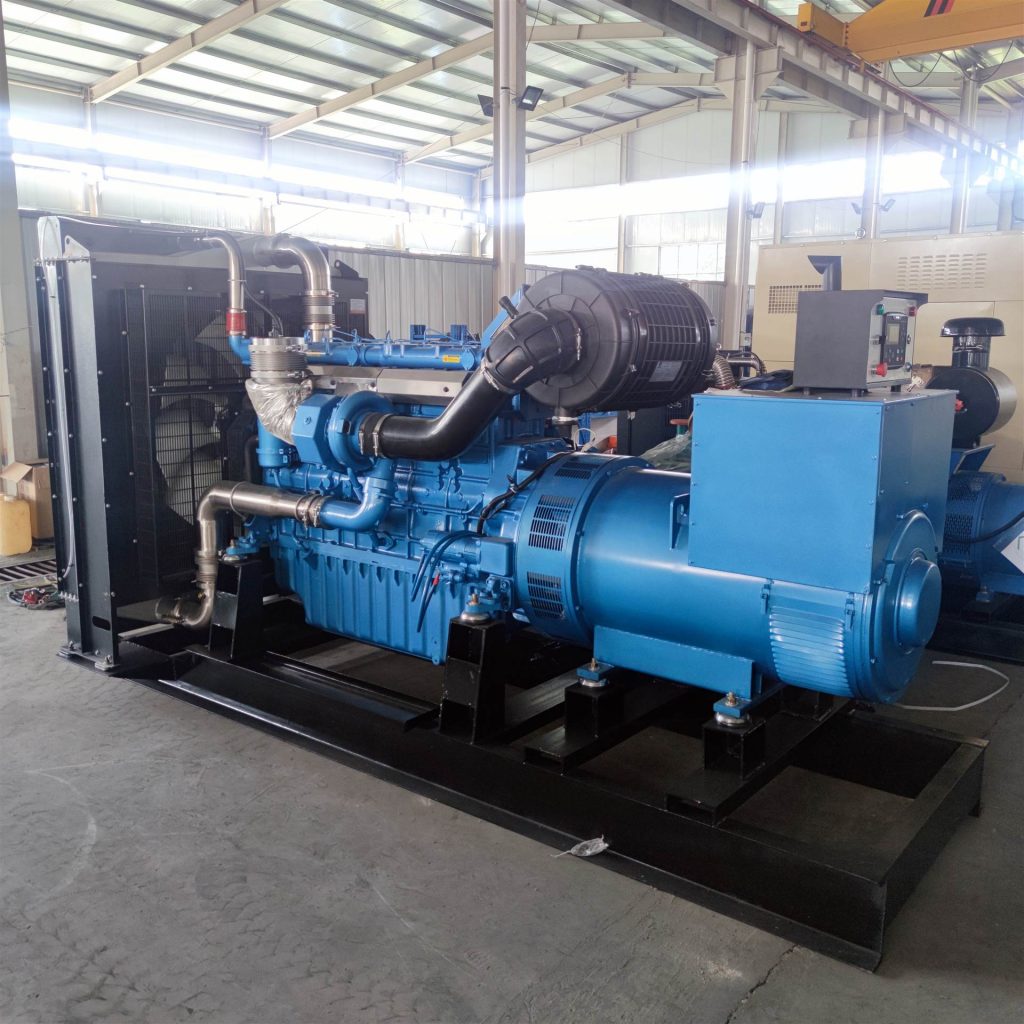Introduction
Maritime vessels, whether they are cargo ships, passenger ferries, or naval vessels, rely heavily on reliable and efficient power generation systems to operate effectively. Diesel generators have long been the preferred choice for providing electrical power on marine vessels due to their robustness, efficiency, and ease of maintenance. In this article, we will explore the importance of diesel generators for marine use, their key features and advantages, as well as the latest innovations in this technology.
300kw diesel generator for remote power supply of Diesel Generators for Marine Use
Marine vessels have unique power requirements that differ from those of land-based applications. Ships need to generate electricity to power their propulsion systems, navigation equipment, lighting, communication systems, refrigeration units, and other essential onboard systems. Unlike land-based power grids, maritime vessels cannot rely on a constant and stable source of electricity from external sources. This is where diesel generators play a crucial role in meeting the power needs of marine vessels.
Diesel generators are known for their reliability, durability, and efficiency, making them the ideal choice for marine applications. They can operate continuously for extended periods, providing a stable source of power even in harsh marine environments. Diesel generators are also highly fuel-efficient, which is essential for long sea voyages where refueling opportunities may be limited. Additionally, diesel generators are relatively compact and lightweight compared to other types of power generation systems, making them well-suited for installation on board ships where space is often limited.
Key Features and Advantages of Diesel Generators for Marine Use
1. Reliability: Diesel generators are renowned for their reliability and robustness. They can operate continuously for thousands of hours without significant maintenance or downtime, making them ideal for long sea journeys where reliability is crucial.
2. Fuel Efficiency: Diesel generators are highly fuel-efficient, consuming less fuel per unit of power output compared to other types of power generation systems. This is a significant advantage for marine vessels that need to optimize fuel consumption to reduce operating costs and increase range.

3. Easy Maintenance: Diesel generators are relatively simple in design and easy to maintain, requiring minimal servicing and spare parts compared to other power generation systems. This is important for marine vessels operating in remote areas where access to technical support may be limited.
4. Compact Size: Diesel generators are compact and lightweight, making them easy to install on board ships with limited space. Their small footprint allows for flexible placement within the vessel's engine room, maximizing the use of available space.
5. Quick Start-Up: Diesel generators can be started and brought online quickly, providing instant power when needed. This is essential for emergency situations or when additional power is required to meet peak loads.
Innovations in Diesel Generators for Marine Use
The marine industry is constantly evolving, and so is the technology used in diesel generators for marine applications. Manufacturers are continually innovating to improve the efficiency, performance, and environmental sustainability of marine diesel generators. Some of the latest innovations in diesel generators for marine use include:
1. Hybrid Power Systems: Hybrid power systems combine diesel generators with energy storage systems such as batteries to optimize fuel consumption and reduce emissions. By intelligently managing the power sources based on demand, hybrid systems can significantly improve overall efficiency and reduce environmental impact.
2. Variable Speed Generators: Traditional diesel generators operate at a fixed speed, leading to inefficiencies at partial loads. Variable speed generators adjust their operating speed based on the load demand, resulting in improved fuel efficiency and reduced emissions.
3. Emission Control Systems: With increasing environmental regulations governing emissions from marine vessels, diesel generator manufacturers are developing advanced emission control systems to reduce harmful pollutants such as nitrogen oxides (NOx) and particulate matter. Technologies such as selective catalytic reduction (SCR) and diesel particulate filters (DPF) are being integrated into marine diesel generators to meet stringent emission standards.
4. Remote Monitoring and Control: Advanced monitoring and control systems allow ship operators to remotely monitor the performance of diesel generators in real-time, identify potential issues early, and optimize maintenance schedules. This proactive approach helps prevent unplanned downtime and ensures the reliable operation of onboard power systems.
Conclusion
Diesel generators are the backbone of power generation on marine vessels, providing a reliable and efficient source of electricity to meet the diverse needs of modern ships. Their robustness, fuel efficiency, easy maintenance, and compact size make them well-suited for the demanding marine environment. With ongoing innovations in technology, diesel generators for marine use continue to evolve, offering improved performance, reduced emissions, and enhanced reliability. As the maritime industry looks towards a more sustainable future, diesel generators will play a vital role in powering the seas for years to come.
